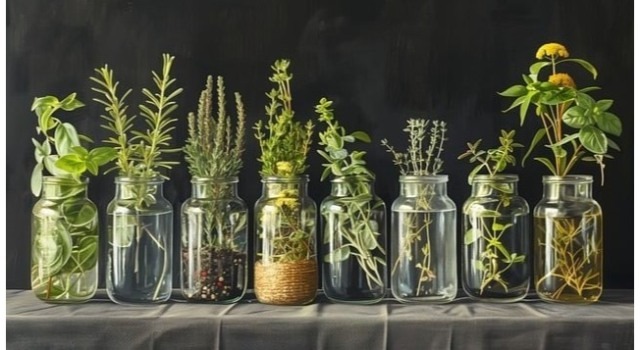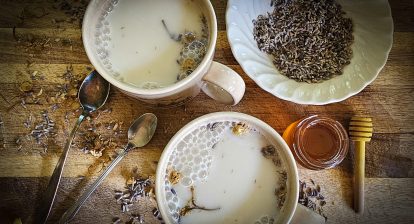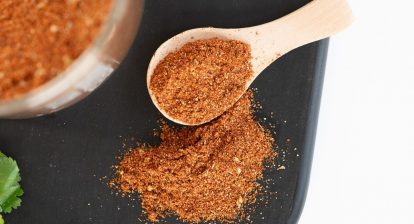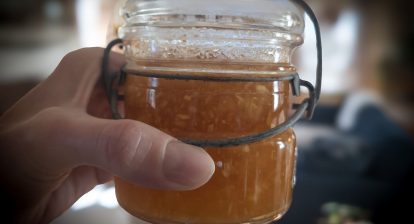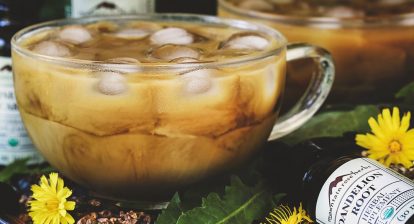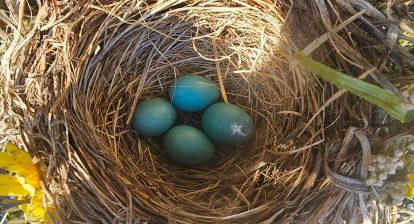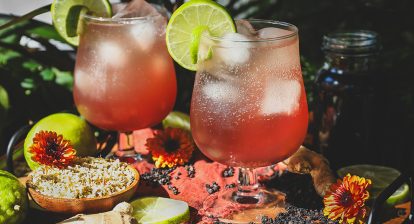Herbs are like the secret sauce in life's recipe, but you need to know some basic rules to use them correctly.
Herbs are packed with flavor and health benefits to make your meals exciting and your body happy.
If you're in your 40s or older, you may be looking for ways to boost your health. That's why understanding the 7 rules for using herbs will help you feel your best.
Rule 1: Fresh is best!
When it comes to herbs, the magic starts fresh. Imagine biting into a juicy tomato salad topped with fresh basil. Well, right? Fresh herbs are bursting with nutrients compared to their dried counterparts, yet dried herbs are still high in antioxidants. Plants as culinary superheroes, packed with flavor and health benefits without any added calories.
So the next time you're at the grocery store or farmer's market, skip the powdered dried herbs and grab the live, fresh ones. It's like choosing between a dull gray sky and a sunny day.
Some of the more delicate herbs are best used fresh. If you can't get fresh, dry is better than not using at all. Remember to use half the amount for dried herbs as for fresh.
Fresh herbs to try:
- Basil: Great for pesto and good with tomatoes.
- Cilantro: A delicious herb to use in Mexican cooking and is a good detoxifier.
- Parsley: This herb is useful as a vitamin C booster – look for flat or curly leaf parsley.
- Chives: A member of the onion family, these slender green spears add flavor to eggs, potatoes, and cheese.
- Mint: Mint is often used in tea and is great for the digestive system. Also makes a great green salad or jelly.
Rule 2: Know your herbs!
Not all herbs are created equal. Some are great for digestion, while others are all about boosting your immune system. Plants are divided into different classifications. Some are stimulating, some are relaxing, some are good for digestion, while others are good for the heart or brain. Knowing individual plants is a great way to study them. It's like knowing which superhero to call when you need help!
Here's a quick guide to some amazing herbs and their health benefits:
- Rosemary: This aromatic herb can help improve your memory—so you remember where to put your glasses!
- Ginger: It's not just for grandma's tea; it's fantastic for soothing tummy troubles.
- menthol: This fresh minty herb can help clear your sinuses, is good for settling your stomach, and even freshens your breath.
- Lavender: This wonder herb is a star at relaxing the nervous system and calming anxiety.
Familiarity with these and other herbs will not only elevate your cooking game, but also help you choose the right herb for your health needs.
Rule 3: Experiment with Cooking!
TheIt's time to get creative in the kitchen. Using plants is like creating a painting; they add color, flavor and nutrients to your meals. Toss some fresh herbs into salads, soups and stir-fries like you're a culinary Picasso.
A sprinkling of thyme on your roasted vegetables? Yes, please. A handful of fennel in yogurt? You bet! Get those herbs dancing on your plates and your taste buds will thank you. Plus, cooking with herbs can make your meals healthier without even realizing it. It is a win-win and makes you more familiar with these exchanges.
Quick recipe idea:
Try making a simple herb-infused olive oil! Simply mix olive oil with fresh herbs like basil and garlic to drizzle on salads or bread. It will take your meal from poor to fantastic in minutes!
Rule 4: Herbal teas are like best friends
Sip, sip, hooray! Herbal teas are like warm hugs in a cup, plus they come with loads of health benefits. Whether you're feeling stressed, need to unwind, or just want a comforting drink, herbal teas have got your back and your stomach covered.
Here are some herbal teas to add to your daily routine:
- camomile: Perfect for calming those frayed nerves after a long day.
- menthol: Excellent for digestion and freshening the breath.
- Hibiscus: This delicious tea can help lower blood pressure.
- Chai tea: A blend of herbs like cardamom, cinnamon, ginger and cloves – it's a powerhouse of flavor and health.
Make yourself a cuppa, kick back and enjoy the soothing atmosphere. Your body will thank you and most likely your mind and soul.
Rule 5: Grow yourself
Growing your own plants is the best way to deal with them. Even if it's cold outside, you can grow them in a pot in a sunny window or use grow lights. Having fresh herbs at your fingertips is like having a mini grocery store in your backyard or kitchen. Plus, gardening can be a fantastic stress reliever and a fun hobby.
A window, balcony or small yard is a sufficient space. Start with light herbs like basil, mint or chives. Or maybe something spicier like oregano or thyme. These are perfect kitchen herbs that work well in small spaces.
Pro tip:
Plants do best in well-drained soil. Many herbs originate from the hot and sunny Mediterranean. Make sure the pot drains or add some rocks to the bottom. Do not overdo it with water.
Rule 6: Be mindful of portions
HHerbs are great, but remember moderation is key. Too much of a good thing can lead to problems. Too much garlic can make you feel a little… well, garlic, some herbs can interact with medications.
It's always wise to check with your doctor, herbal health practitioner, or a nutritionist if you're not sure how much of a particular herb you should be using. Keep it balanced and you'll reap all those glorious health benefits without a single hiccup.
Rule 7: Plants take time to heal
In our fast-paced world, we expect things to work instantly. Plants don't work like that.
Unless an herb is a stimulant, most herbs work better over time and help heal at the cellular level.
You should give it several weeks, or even longer when taking herbal remedies for health problems.
This is especially true when someone has suffered from a health condition for a long period of time.
It is also important for plant adaptogens – this is a group of plants that help the body adapt to stress, support the immune system, provide energy and hormonal balance.
Herbal adaptogens such as ginseng, maca, ashwagandha or medicinal mushrooms such as Reishi should be taken over several months to reap health benefits.|
Want to learn more about plants? Join the Herbal Journey and discover how to use herbs for health, cooking, gardening and more!
Views: 0

